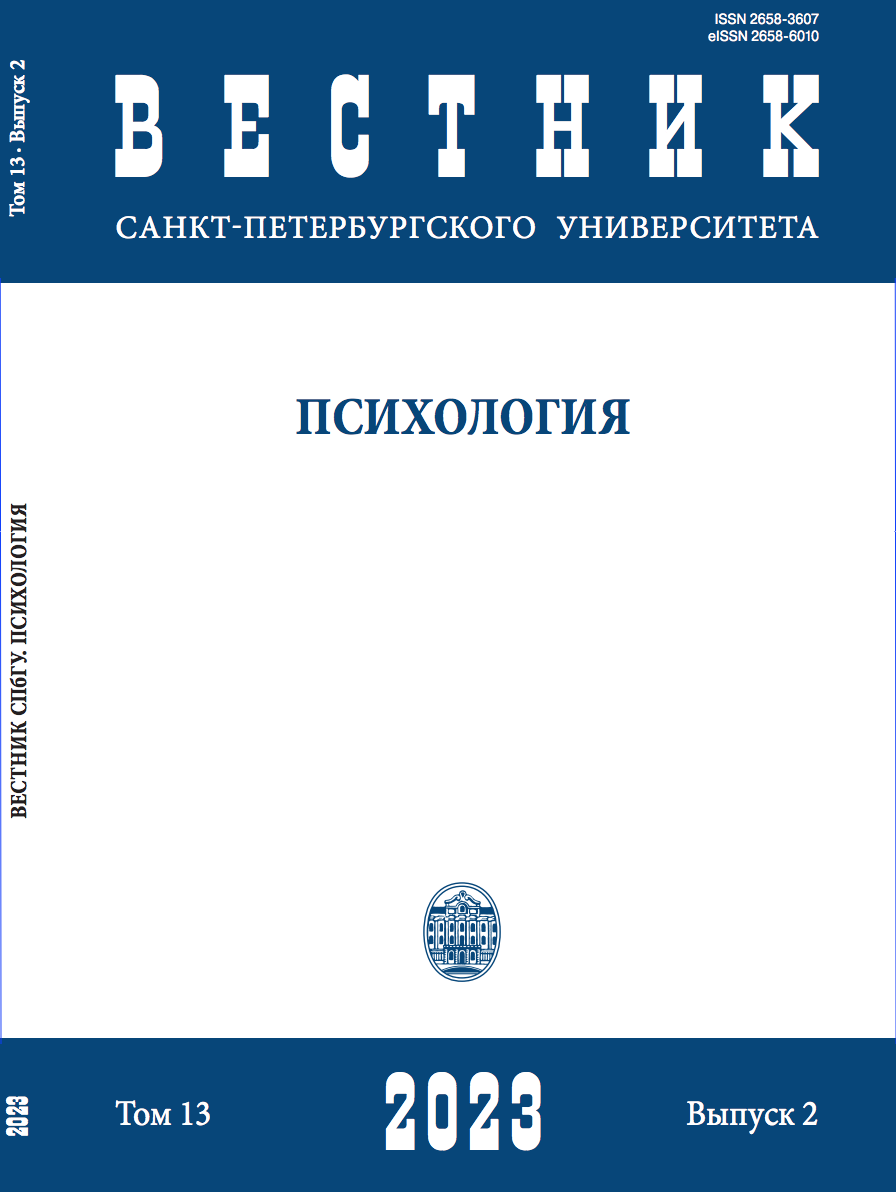The Russian version of Inventory of the Dimensions of Emerging Adulthood (the IDEA-R): Developmental features of university students
Abstract
Emerging adulthood is a new liminal period ranging from 18 to 25 years, and is a trend in most of today’s industrialized societies. Its key psychological dimensions have been explored in many countries through the IDEA (Inventory of the Dimensions of Emerging Adulthood) instrument, but not in Russia. The goal of the present study was to measure the psychometric properties of the IDEA-R in Russia. This study applied an adaptation of the IDEA-R to 410 Russian students aged 18 to 25, whose educational level ranged from Bachelor’s to Master’s of higher school. An Satisfaction With Life Scale (SWLS) and the Zimbardo Time Perspective Inventory (ZTPI) additional measures were used. Exploratory factorial analysis pointed out that the IDEA-R adapted to the Russian context presented a six-factor structure. These factors are: identity exploration/self-focus, instability/negativity, personal freedom, experimentation/possibilities, feeling “in-between”, other-focused. The measure has the internal consistency (Cronbach’s α=0.82) and stability in time (ρ=0.62). Age reduced the levels of the perception of experimentation/possibilities (p=0.001) and feeling “in-between” (p<0.001). We found that the participants who reported higher levels of SWLS and the ZTPI exhibited lower level instability/negativity (p ≤ 0.001), but higher levels identity exploration/self-focus, and experimentation/possibilities (p ≤ 0.001). In conclusion, the IDEA-R is a valid and reliable instrument of investigation of the emerging adulthood phenomenon in Russia and to provide data for comparison of the measure in different countries.
Keywords:
emerging adulthood, development, students, psychometric properties, Russia
Downloads
References
References
Downloads
Published
How to Cite
Issue
Section
License
Articles of "Vestnik of Saint Petersburg University. Psychology" are open access distributed under the terms of the License Agreement with Saint Petersburg State University, which permits to the authors unrestricted distribution and self-archiving free of charge.




